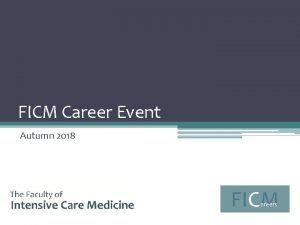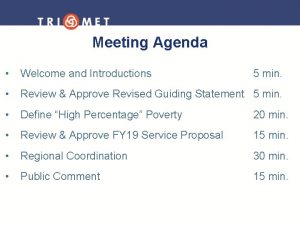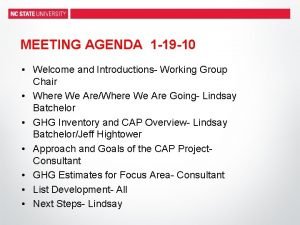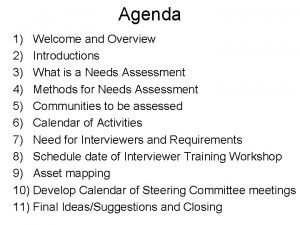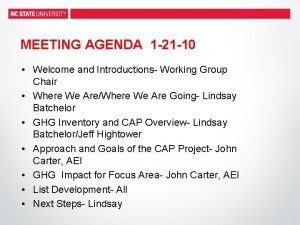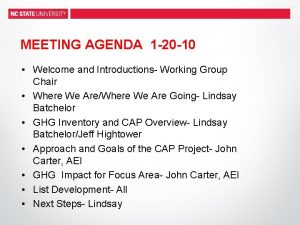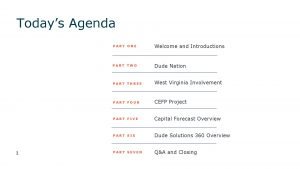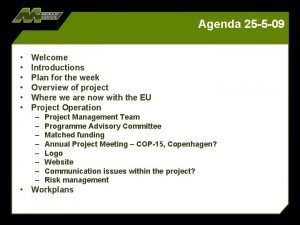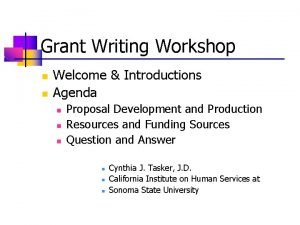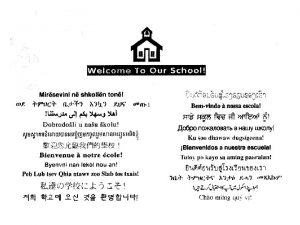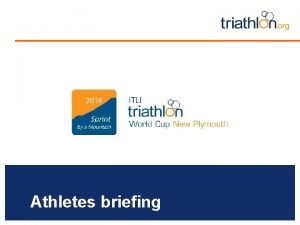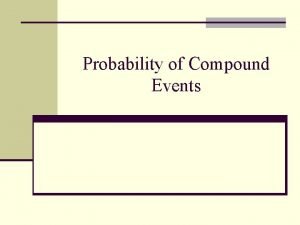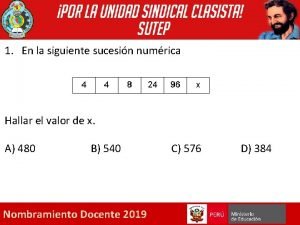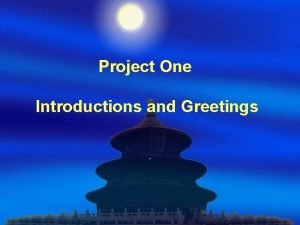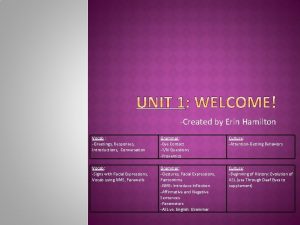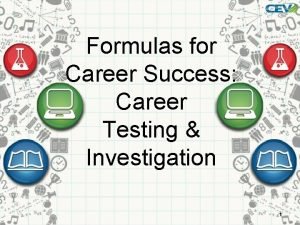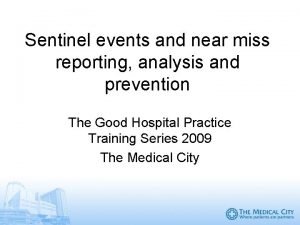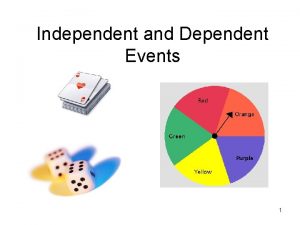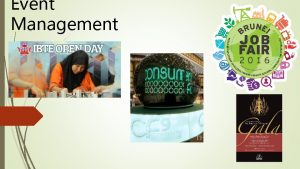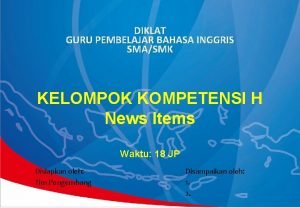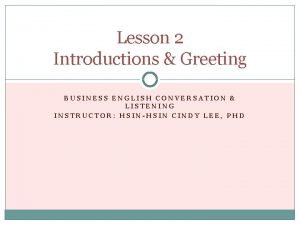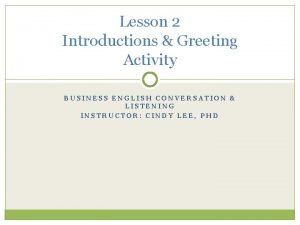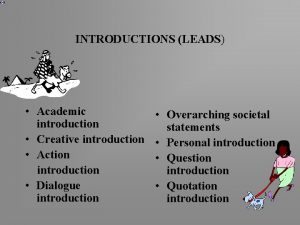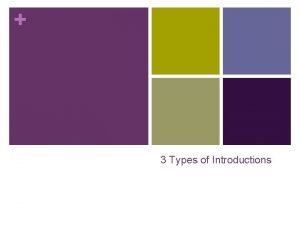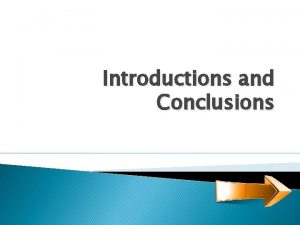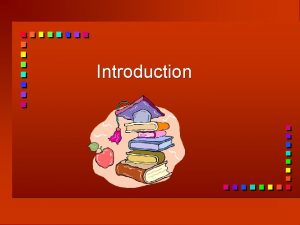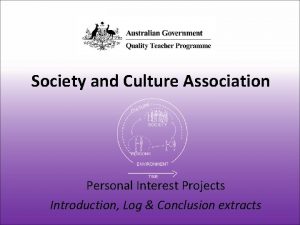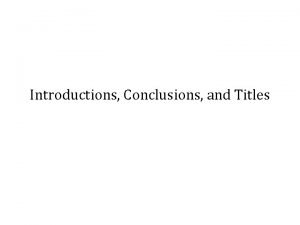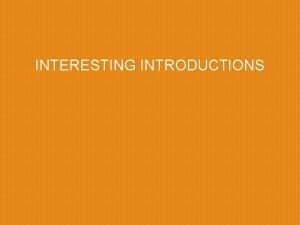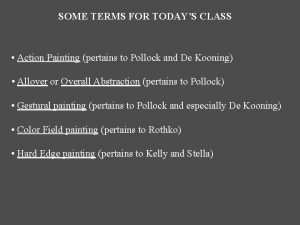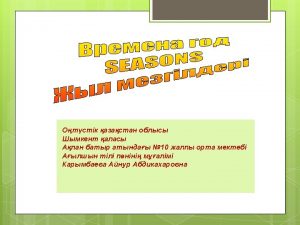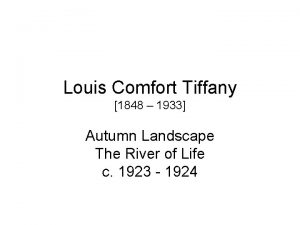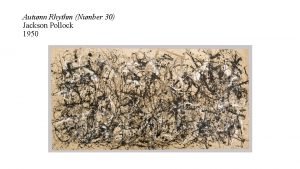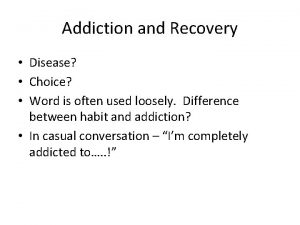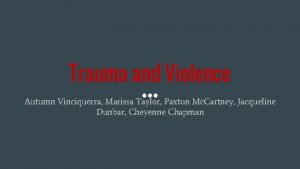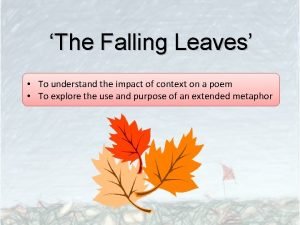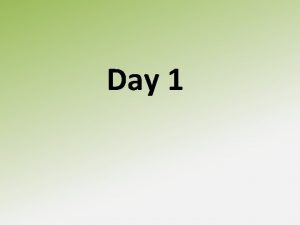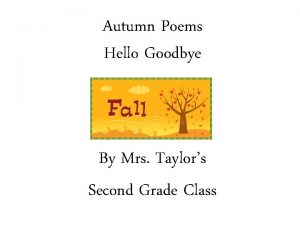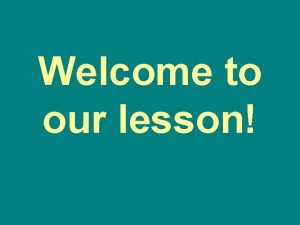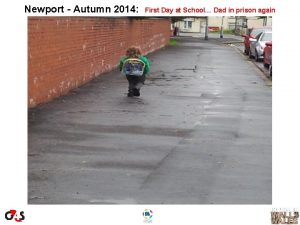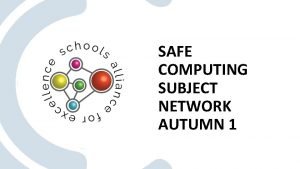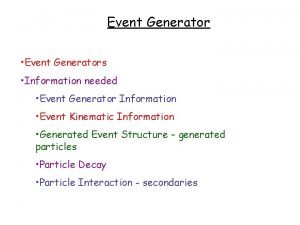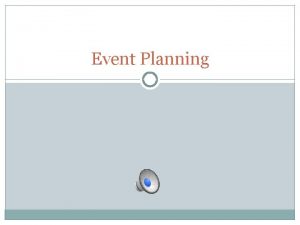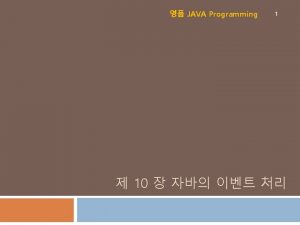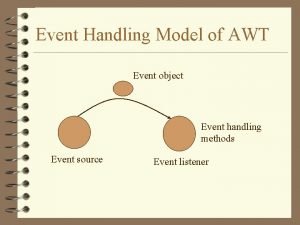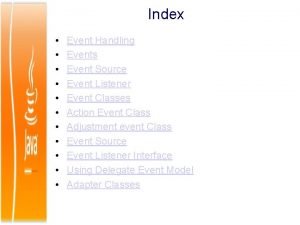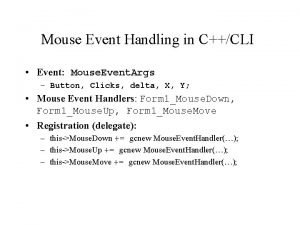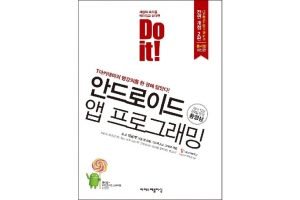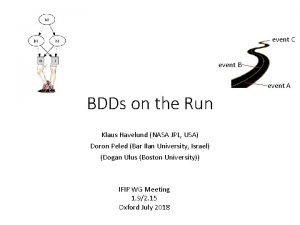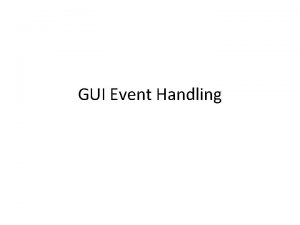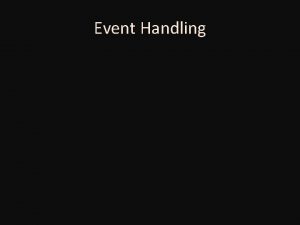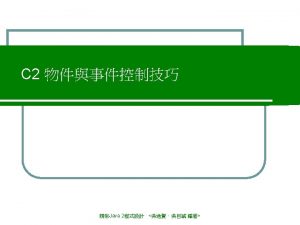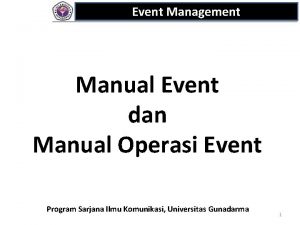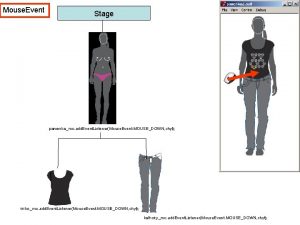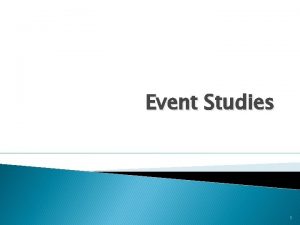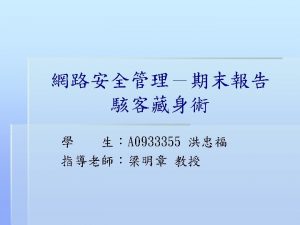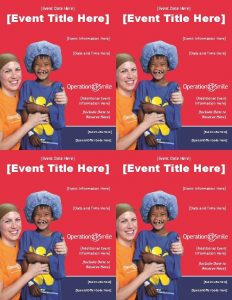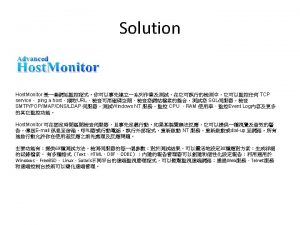FICM Career Event Autumn 2018 Welcome and introductions





































































- Slides: 69

FICM Career Event Autumn 2018

Welcome and introductions

1. Introduction & Overview

Aims • This event will give you accurate and up to date information provided by the FICM about: ▫ Careers in ICM ▫ ICM training opportunities ▫ Recruitment

It includes the following presentations: • So you want to do ICM? • Core Training in ICM • Specialty Training in ICM Single CCT & Dual CCT • How to prepare for & what to expect at an ICM Interview

There will also be time for: • A discussion around training in ICM • To answer any questions you may have

Any questions?

Summary • You will leave this event with accurate and up to date information about: ▫ Careers in ICM ▫ ICM training opportunities ▫ Recruitment to ICM training

So you want to do ICM?

Aims • This presentation will cover: ▫ What is an intensivist? What conditions do they help manage What skills do they have and what procedures do they perform? ▫ ▫ What makes ICM unique? The challenges of a career in ICM The rewards and benefits of a career in ICM What intensivists are made of!

A career in ICM • ICM specialists are involved in all aspects of the care of critically ill patients • Intensivists provide organ support along with investigations, diagnostics and treatment of acute illness. • We are very involved with patient safety, ethics, end of life care and the support of patients and families through their stay in ICU and beyond.

Intensivists manage: • • • Heart failure Renal failure Liver failure Brain injury Sepsis Respiratory failure Multi-trauma Acute intoxication and poisoning Post-major surgery organ support Everything!

Intensivists perform: • • Emergency intubation Mechanical ventilation Invasive cardiovascular monitoring Percutaneous tracheostomy Point of care ultrasound Renal replacement therapy Bronchoscopy Transfer of the critically ill patient

What makes ICM unique? • We don’t just deal with one organ system • ICM encompasses the entire spectrum of medical and surgical pathology. • The ICU functions as a team within the hospital: intensivists, visiting specialists, nursing staff, ACCPs, pharmacists, physiotherapists, microbiologists, speech and language therapists… • Intensivists work with virtually every staff group in the hospital.

Challenges of a career in ICM • If you choose to train in ICM with another specialty (Dual CCT) this lengthens training • ICM training means an extra set of professional exams • A considerable proportion of clinical work is out-of-hours. • There is a very high level of consultant led care • The emotional burden of managing critically ill patients can put intensivists at risk of burnout

Benefits of a career in ICM • • • Multi-specialty case mix Multi-disciplinary team working Practical procedures Physiology and pharmacology in action Challenging but very rewarding decision making …there is always someone there to work with and chat to!

What are intensivists made of? Clinical curiosity and attention to detail The ability to remain calm in critical situations The ability to work with and lead the MDT The ability to communicate with other specialties constructively • The ability to communicate with patients and families clearly and compassionately • •

Any questions?

Summary • Intensive care medicine is an immensely rewarding specialty • ICM is a ‘multi-faceted’ specialty which interacts with the rest of the hospital • Intensivists work closely with other specialists and the multidisciplinary ICU team • At times ICM can be challenging and demanding • A career in ICM can suit a wide variety of personalities and there is no such thing as a ‘typical’ intensivist

Core Training

Aims • We will briefly explore ▫ Routes into ICM specialty training ▫ Enjoying your ICM placement ▫ Targeting your portfolio for ICM

Routes into ICM training • At present there is no core training in ICM • Currently you can enter ICM specialty training through: ▫ ACCS ▫ Core Medical Training (IM stage 1 training from 2019) ▫ Core Anaesthetic Training

Routes into ICM training: ACCS • This will be badged as ACCS (Acute Medicine), ACCS (Anaesthesia) or ACCS (Emergency Medicine) • ACCS training lasts for an indicative 3 years • All trainees rotate through Acute Medicine, Emergency Medicine, Anaesthesia and ICM • To successfully complete an ACCS training programme you must achieve the appropriate assessments and specialty examination (ie MRCP/MRCEM/FRCA Primary)

Routes into ICM training: Medicine • Traditionally this has been from ‘Core Medical Training’ (CMT) • This will become ‘Internal Medicine (Stage 1) Training’ (IMT) from Aug 2019 • IMT programmes are for an indicative 3 years • All IMT trainees will rotate through ICM • Expected to complete MRCP(UK)

Routes into ICM training: Anaesthesia • Core training in anaesthesia (CAT) lasts an indicative 2 years • All trainees do at least 3 months of ICM • Expected to complete Primary FRCA

Tips for A Core Training ICM Module • Core training is a good time to help you decide if you want to pursue ICM as a career • You may start consider if you would prefer to train in ICM alone or with another specialty (single or dual specialty training) • Remember: dual specialty training means extra exams! • Treat every rotation in core training as your only job so you can get the best out of it

What can ICM teach me? • Take this opportunity to learn to manage sick patients • Learn to work with the MDT in ICM • Explore physiology at the bedside • Learn how to have end of life discussions with patients and families

How can ICM placement help me? • Find a mentor • Ideal chance to score portfolio points ▫ There always audits and QI projects available ▫ Present posters, go to conferences, do resuscitation courses

Any questions?

Summary • We have discussed: ▫ The different routes into ICM specialty training ▫ How to enjoying and make the most of an ICM placement ▫ How an ICM placement can help you prepare your portfolio for a career in ICM

Specialty Training in ICM

Overview • Routes ▫ Single CCT ▫ Dual training Anaesthesia Emergency Medicine Acute Internal Medicine Respiratory Medicine • Assessment and examinations • Less than full-time training • Out of programme experience/training

Entry Requirements • Completion of ▫ FRCA (Primary) ▫ MRCP UK (full) ▫ MCEM (full) • National recruitment at ST 3

ICM only (single) CCT 1

ICM only (single) CCT 2

Dual CCT: ICM & Anaesthesia

Dual CCT: ICM with EM

Dual CCT: ICM with Acute Medicine

Dual CCT: ICM & Respiratory or Renal Medicine

‘Specialist’ ICM within training • • Paediatric Neuro Cardiac General

Special Skills Year • During stage 2 training in ICM • For those doing single CCT only ▫ Academic ICM ▫ Management ▫ Pre-hospital medicine ▫ Education ▫ Echocardiography • Dual trainees spend this time pursuing training in their partner specialty

Assessments during ICM training • Workplace based assessments • CBD • Mini-CEX • DOPS • 30 Cases • Logbooks • Portfolios

FFICM Examination • Required for progression to Stage 3 • Written 50 MCQs 50 SBAs • Structured Oral Examination • OSCE

Training extension • Career breaks ▫ Personal/professional reasons • LTFT ▫ Pro-rata basis ▫ Local Educational Training Board ▫ Liaise with RA/FT within your Deanery

Out of programme training • Training (OOPT) ▫ Must have completed stage 1 in entirety ▫ Must map to competencies in CCT programme ▫ Must be prospectively approved by GMC, Postgraduate Dean, FICM and college ▫ One year in total and includes a written report • Experience (OOPE) ▫ A clinical or research post which does not counting toward CCT ▫ Must prospectively inform the FICM

Any questions?

Summary We have discussed: • Training in ICM: ▫ Single CCT ▫ Dual with a partner specialty • Assessment and examinations • Less than full-time training • Out of programme experience/training

How to Prepare for an ICM Interview

Aims • This talk will help you prepare for an ICM interview, including: ▫ ▫ Preparing a portfolio What to take with you How to practice Where to find further advice

Preparing your portfolio • Use the person specification to prepare your portfolio ▫ Link evidence in your portfolio to the person specification • Have the evidence for everything you’ve done ▫ Paper copies and printouts ▫ Evidence can take time to collect – start early! • Know where things are and how to find them ▫ Use an index

What to take with you • Original proof of identity and address • Original and photocopies of ▫ GMC registration ▫ All relevant medical qualifications • Your prepared portfolio • Evidence of visa status if not UK/EEA

How to practice 1 • Prepare as you would for a viva • Make sure you know where the venue is and how to get there • Practice finding things in your portfolio and know your way around it • Practice writing reflective pieces to prepare for the reflective practice station ▫ Use examples on the FICM website

How to practice 2 • Consider your presentation skills ▫ present in front of supervisors and colleagues in a focussed time sensitive way. ▫ Be organised and succinct in your delivery. • Practice summarising clinical cases every day ▫ use pertinent results and investigation ▫ practice creating differential diagnoses.

How to practice 3 • Ask supervisors and colleagues for task prioritisation practice • Learn to justify your responses based on sound clinical principles

Further information • There is further information available on the following websites: ▫ Faculty of Intensive Care Website (ficm. ac. uk) ▫ Intensive Care National Recruitment Website (HEE West Midlands)

Any questions?

Summary • We have outlined the importance of preparing for your interview ▫ ▫ Preparing your portfolio What to take with you How to practice for the interview Where to find further advice

What to Expect at an ICM Interview

Aims • This talk will help you prepare for an ICM interview ▫ It will describe the venues ▫ It will describe the ‘Selection Centre’ process and what it includes • It will give you further tips on how to make the best of yourself and your portfolio

Venues • The ICM selection centre is commonly held in a football stadium • These venues are usually close to motorway networks, are easy to find and have good parking facilities • ICM recruitment 2019 will be held at West Bromwich Albion home ground ‘The Hawthorns’

Venues • When you arrive you should report to the FICM registration desk • Staff will check your details and explain the process you will follow • Spend at least 3 hours at the selection centre

The ICM Selection Centre • Four ‘face to face’ stations: ▫ Portfolio ▫ Presentation ▫ Clinical ▫ Task prioritisation • The face to face interviews are conducted in corporate ‘boxes’ at the stadium • Minimum of two experienced FICM interviewers • There may also be observers e. g. a lay representative

The ICM Selection Centre • In addition there is one written station: ▫ Reflective practice • This is held in a larger room, and is conducted under examination conditions • The written reports are then read and scored by a minimum of two FICM interviewers

The ICM Selection Centre • Scores from each station will be collated to provide an overall score • Entered, collected & collated electronically to avoid transcription errors • When the interview process is completed candidates are ranked and job offers made where appropriate • All interviewers are well briefed

Any questions?

Summary • ICM recruitment uses a five station ‘selection centre’: ▫ Portfolio, Presentation, Clinical, Task prioritization & Reflective practice (written) • The interviews are conducted in a fair, transparent and quality assured way • Further details and examples of questions can be found on the FICM website

Summary & Discussion

Further thoughts and time for questions?

Summary • We hope that you will leave this event feeling you have had information about: ▫ Careers in ICM ▫ ICM training opportunities ▫ Recruitment to ICM training
 Ficm dops
Ficm dops Meeting agenda welcome and introductions
Meeting agenda welcome and introductions Agenda welcome and introductions
Agenda welcome and introductions Agenda welcome and introductions
Agenda welcome and introductions Agenda welcome and introductions
Agenda welcome and introductions Agenda welcome and introductions
Agenda welcome and introductions Agenda welcome and introductions
Agenda welcome and introductions Meeting agenda welcome and introductions
Meeting agenda welcome and introductions Agenda welcome and introductions
Agenda welcome and introductions Agenda welcome and introductions
Agenda welcome and introductions Agenda welcome and introductions
Agenda welcome and introductions Agenda welcome and introductions
Agenda welcome and introductions Agenda welcome and introductions
Agenda welcome and introductions Simple or compound event
Simple or compound event B a f c j e
B a f c j e German greetings and introductions
German greetings and introductions Greetings and introductions
Greetings and introductions Asl greetings and introductions
Asl greetings and introductions 79 career clusters in the national career cluster framework
79 career clusters in the national career cluster framework Formulas for career success
Formulas for career success A sentinel event
A sentinel event Independent event vs dependent event
Independent event vs dependent event Independent and dependent probability
Independent and dependent probability Swot event management
Swot event management Peta konsep news item
Peta konsep news item Language features of news item text
Language features of news item text Welcome welcome this is our christmas story
Welcome welcome this is our christmas story Attention grabber in essay
Attention grabber in essay Greeting in english conversations
Greeting in english conversations Higher persuasive essay
Higher persuasive essay Survey introductions
Survey introductions Catchy introductions
Catchy introductions Business english conversation
Business english conversation Creative introductions
Creative introductions Interrogative introduction
Interrogative introduction Introductions clip art
Introductions clip art Introductions by marsha
Introductions by marsha British council introductions
British council introductions My personal interest
My personal interest Titles for conclusions
Titles for conclusions Interesting introductions
Interesting introductions Spring summer autumn fall
Spring summer autumn fall When is spring summer autumn and winter
When is spring summer autumn and winter Autumn breese
Autumn breese What happens in autumn
What happens in autumn Thanksgiving fact and opinion
Thanksgiving fact and opinion Spring is green summer is bright song
Spring is green summer is bright song Autumn rhythm (number 30) 1950
Autumn rhythm (number 30) 1950 Summer winter rainy spring autumn
Summer winter rainy spring autumn Matt monro autumn leaves
Matt monro autumn leaves Louis comfort tiffany autumn landscape
Louis comfort tiffany autumn landscape Wild swans at coole poetic techniques
Wild swans at coole poetic techniques Jackson pollock autumn rhythm 1950
Jackson pollock autumn rhythm 1950 Autumn rhythm (number 30) 1950
Autumn rhythm (number 30) 1950 Autumn vinciquerra
Autumn vinciquerra Sometimes whoever seeks abroad
Sometimes whoever seeks abroad Flemish clay meaning
Flemish clay meaning The happy autumn fields
The happy autumn fields Every autumn comes the bear
Every autumn comes the bear Wild swans at coole techniques
Wild swans at coole techniques Tongue twister about weather
Tongue twister about weather Words that rhyme with autumn
Words that rhyme with autumn Goodbye summer poem
Goodbye summer poem Unscramble
Unscramble Autumn summer
Autumn summer First day of autumn 2014
First day of autumn 2014 Us digital millennium copyright act autumn
Us digital millennium copyright act autumn Assonance and consonance
Assonance and consonance Heroic couplet rhyme scheme
Heroic couplet rhyme scheme Why we celebrate dussehra
Why we celebrate dussehra
